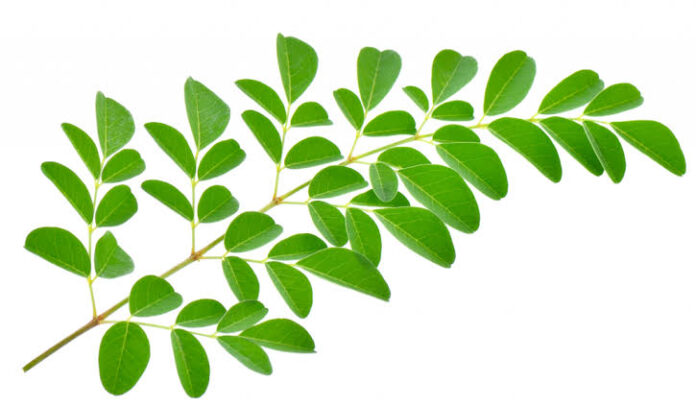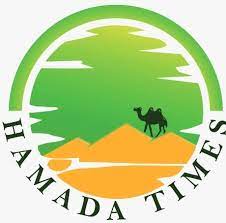By Khadija Hamisu Daninna
Moringa, scientifically known as Moringa oleifera and locally called Zogale in Hausa, has been described in research as a miracle tree because of its wide-ranging nutritional and medicinal value. Studies published in journals such as Academic Journals and by institutions like the National Institutes of Health highlight its potential in combating malnutrition and managing chronic diseases. Researchers note that the tree is rich in vitamins A and C, calcium, and protein, making it an important food source. Its leaves also contain powerful antioxidants, while its anti-inflammatory, antibacterial, and water purification properties have attracted attention not only in health science but also in agriculture and industry. While more human-focused studies are still needed, Moringa continues to be recognized worldwide as a plant with enormous potential.
Yet beyond these studies, in northern Nigeria, Moringa is part of everyday life. To some, it is food. To others, it is medicine. And for many, it is both. Across kitchens, farms, and even university laboratories, this simple tree has found its place in homes and health practices.
For some people, Moringa is simply a tasty addition to meals. Fatima, a resident of Rumfar Shehu, said she does not treat it as a full meal but rather as something that completes a dish. “For me, Moringa is just something I add to food, especially Dambu(steamed ground rice). Even though Dambu can be made without Moringa, to me it is an essential ingredient,” she explained.
Others, like Nafisa from Unguwar Kaura, see it as both food and health. She described how she prepares it in her kitchen: “I wash the leaves, dry them, and mix them with kuli-kuli, groundnut oil, seasoning, onions, and tomatoes. That is how I enjoy Moringa,” she said.
But not everyone is fond of it. Hauwa’u admitted she cannot tolerate its smell. “I don’t like it, especially when it is cooked in meals,” she said. Still, she grows Moringa in her backyard and sometimes sells or gives away the seeds to people who need them.
For some, Moringa is more than just flavor. It is a trusted remedy. Hafsa, who has struggled with ulcer for years, said she once tried a method recommended to her. “I dried the leaves in the sun, ground them into powder, and started taking it with milk. It really helped my ulcer, and I can testify that it worked for me,” she said.
Baaba Talatu, a resident of Sharada, explained that she sees Moringa mainly as medicine. “I use it myself and people with diabetes take it too. It is also used for high blood pressure. You grind the leaves with water, sieve it, and drink the liquid. It lowers high blood pressure. In fact, the whole tree, the roots, the seeds, the leaves, they are all medicine. Even the seeds are used to purify water,” she explained.
For Aisha, Moringa plays a role in one of the most critical moments of life: childbirth. “This is my third time giving birth, and every time I go into labor, my mother gives me Moringa water. You grind the leaves, sieve the water, and drink it. It really helps during labor,” she said.
In other cases, Moringa has become part of daily meals in unexpected ways. Firdausi, who relocated from Lagos to Kano, said she cooks Moringa frequently for her husband. “He takes it both as food and for the health benefits. Even if I am cooking Indomie for him, I must add Moringa,” she said with a smile. Back in Lagos, the family even planted a Moringa tree in front of their house to ensure they always had access to it. “The only challenge was that people would often come to pluck the leaves or even the roots without permission, maybe because they also know the benefits,” she added.
To put these perspectives into context, Professor Muhammed Atiku, a lecturer from the Department of Biochemistry at Bayero University Kano, explained that both food and medicinal uses of Moringa are valid. “For those who eat it as food, it helps maintain a healthy body. It supports blood circulation, strengthens the body, and even helps with the eyes. Now science has confirmed what people long practiced. Research shows that both the leaves and the seeds have potential uses, which is why Moringa is often called the Miracle Tree,” he said. He added that those who use it for medicine usually do so depending on the illness. “It helps in fighting diseases such as diabetes and hypertension. There is a belief that if a person takes the boiled water of Moringa during these illnesses, it really helps in curing them. People before used to eat Moringa without knowing its benefits. You would see them mixing it with kuli-kuli and groundnut just to eat it. But now with research, it has been found that Moringa is a very useful plant,” he said.
Whether it is sprinkled on Dambu, boiled in Indomie, taken with milk for ulcer, or used to ease childbirth, Moringa continues to prove its versatility. What was once simply part of tradition is now being confirmed by science. The tree, from its roots to its seeds, carries within it the power to nourish, heal, and sustain.


